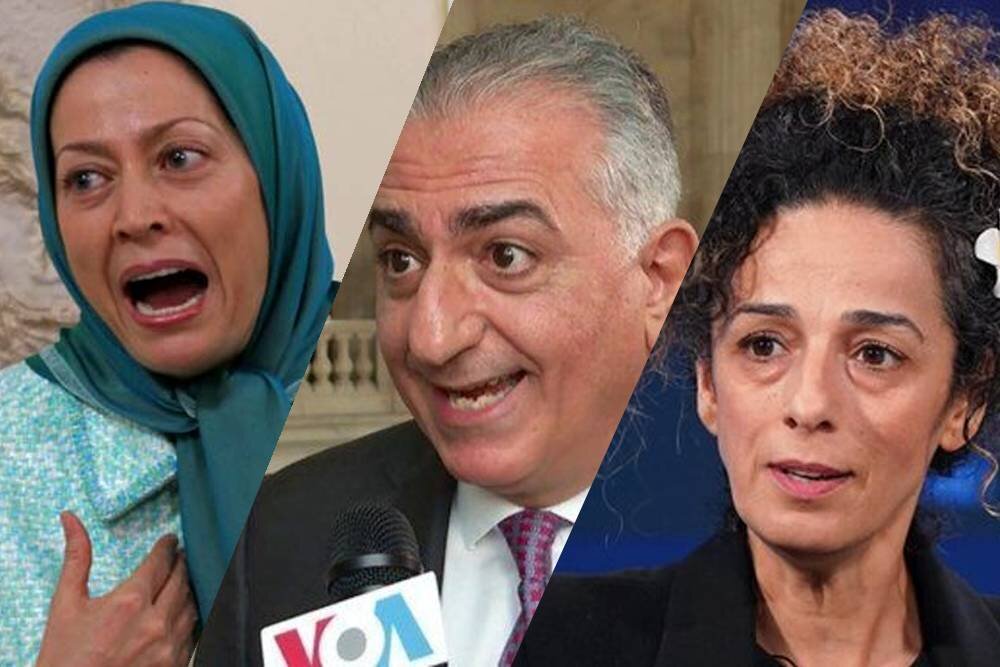Son of toppled Shah align with Iran’s enemies, seeks power through foreign intervention

TEHRAN - The exiled son of the Iranian Shah toppled in the 1979 Islamic Revolution has once again seized the moment to push its long-failed ends.
Reza Pahlavi, who has spent over 40 years attempting to install himself in Iranian political life with no popular mandate or legal legitimacy, has repeatedly turned to Iran’s arch enemies for support -- a pattern that reveals the desperation and political opportunism underlying his ambitions.
This time, as tensions escalate in the region following a wave of Israeli and American military aggression against the Islamic Republic, he appears to be capitalizing on foreign attacks to help revive his decades-old dream of returning to power in the country.
From face-to-face meetings with Israeli Prime Minister Benjamin Netanyahu to aligning himself with Tel Aviv during the recent Israeli aggression against Iranian sovereignty, Pahlavi has demonstrated a consistent willingness to prioritize his personal power goals over national interest.
Also on Monday, Pahlavi, during a speech in Paris, turned to foreign powers in hopes of gaining support to fulfill his ambitions.
In an interview with anti-Iranian outlet Iran International on Sunday, Pahlavi naively claimed that the Iranian political and military structure was “collapsing” and called for immediate public uprising, urging Iranians to take to the streets. Simultaneously, he boasted of having a “transition plan” for Iran’s future, a plan that is built on foreign intervention and echoes of colonial arrangement.
“Pahlavi’s reliance on external support from regimes hostile to Iran shows the political bankruptcy of the so-called opposition,” said a political analyst in Tehran. “They lack popular support, internal credibility, and a clear political vision rooted in Iranian sovereignty.”
His positions, however, are increasingly seen by observers in Iran as part of a broader pattern among exiled opposition figures, including the MKO cult led by Maryam Rajavi and the New York-based Masih Alinejad, who, in times of national crisis, choose to side with foreign powers instead of the Iranian people.
Rajavi, the leader of the Mojahedin-e-Khalq Organization (MKO), notorious for its alliance with Saddam Hussein during the Iran-Iraq war and a long record of espionage and terrorism, also recently endorsed Israeli attacks, calling them “the beginning of a new chapter.”
Her statements at the European Parliament -- which granted her a platform -- were widely condemned by Iranian officials and many independent observers as further proof of European complicity in undermining regional stability.
Meanwhile, Alinejad, known for her repeated calls for Western military intervention in Iran, openly criticized Israel not for attacking Iran, but for what she considered poor timing. She lamented that Israeli strikes “disrupted” the opposition’s plans and, in her words, “set the project of regime change back 15 to 20 years,” indirectly admitting that the attack backfired and only reinforced public solidarity against foreign aggression.
These reactions from exiled dissidents have drawn widespread criticism within Iran, and among Iranian people, who firmly excessive national unity in the face of external threats. Many view the remarks of Pahlavi, Rajavi, and Alinejad as tone-deaf and disconnected from the reality on the ground -- where ordinary Iranians see foreign military attacks as unacceptable violations of sovereignty.
AM
